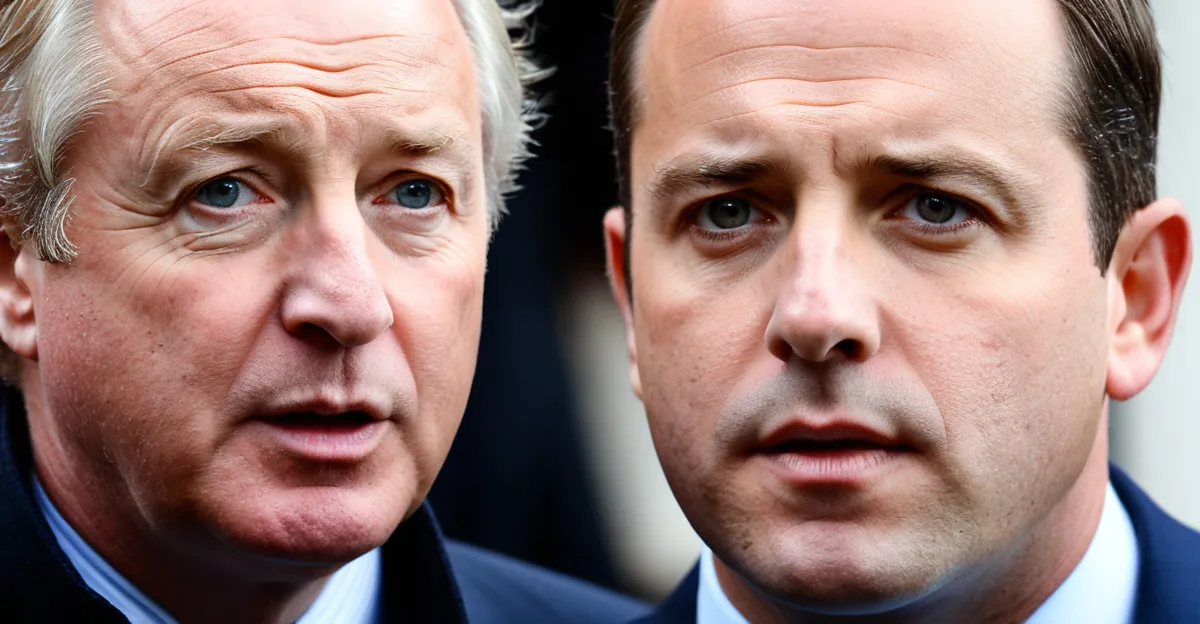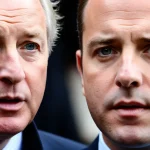Overview of Political Changes Affecting British Media
The British media landscape is currently navigating a complex era marked by political changes that are shaping narratives and influencing public discourse. At the forefront is Brexit, a seismic event prompting significant adjustments across media platforms. Brexit led to editorial shifts, where news outlets had to balance complex continental coverage with domestic implications. Additionally, shifting party dynamics, such as changes within major political parties, influence media stories and often sway public opinion.
Adapting to these changes necessitates a robust understanding of media adaptation strategies. Media entities must remain agile, constantly re-evaluating their approaches to political reporting to maintain relevance and trust. One core strategy involves redefining coverage to address emerging political tensions and public sentiment faithfully.
Topic to read : How is climate change impacting the UK’s infrastructure?
Understanding the scope and impact of these political changes is crucial for both journalists and audiences. It enables a nuanced examination of the British media landscape, ensuring that media practices evolve alongside the nation’s dynamic political environment.
Media Response Strategies
British media outlets have been compelled to adapt their editorial shifts in response to evolving political changes. These media response strategies are crucial for maintaining relevance and trust in the eyes of their audiences. One key adjustment involves re-evaluating editorial policies to provide comprehensive coverage that addresses emerging political narratives effectively.
Topic to read : What are the UK’s strategies for boosting the tourism industry post-pandemic?
News platforms have adopted various coverage strategies to navigate these changes. For instance, many outlets now focus on investigative journalism to delve deeper into political shifts and their implications. This approach not only enriches content but also enhances the credibility of journalism by providing well-researched and fact-based information.
Moreover, different media platforms have tailored their responses uniquely. Some opt for in-depth analyses and expert commentary to offer nuanced perspectives on political events, while others prioritize real-time reporting and interactive features to engage audiences more dynamically. These media response strategies are instrumental in shaping how the British media landscape evolves and ensures that news outlets can faithfully reflect the complexities of contemporary politics.
Case Studies of Prominent British Media Outlets
A thorough examination of case studies offers insight into the diverse approaches that prominent British media outlets take in political reporting. This exploration is crucial for understanding the British journalism landscape and how various platforms have adapted to dynamic political environments.
The Guardian
The Guardian is renowned for its progressive editorial stance, often emphasizing investigative journalism to dissect complex political issues. It employs an in-depth analysis approach, reaching out to experts and utilizing resources to bring comprehensive stories to its readership. Additionally, The Guardian is noted for its transparency, striving to maintain an open dialogue with its audience to build credibility and trust.
BBC News
BBC News, a staple in British households, maintains a commitment to impartiality and accuracy. Its strategy includes providing balanced viewpoints and expert analyses to ensure it caters to a diverse audience. BBC News incorporates interactive elements in its coverage strategy, such as live debates and audience Q&A sessions, fostering audience interaction and engagement effectively.
The Telegraph
The Telegraph offers a more traditionally conservative perspective in its political reporting. Its editorial approach often focuses on current affairs and includes commentary that resonates with its readership. The Telegraph utilizes both digital and print platforms to maximize reach and influence within the British journalism circle. This outlet places significant emphasis on editorial independence, valuing credibility as a cornerstone of its reporting ethos.
This examination reveals the diverse tactics employed by these outlets to engage audiences, showcasing distinct editorial shifts and coverage strategies reflective of their unique positions in the media landscape.
The Role of Social Media in Political Coverage
Social media has revolutionized news distribution and reshaped how audiences engage with political coverage. Platforms such as Twitter and Facebook have become pivotal in disseminating political discourse, providing real-time updates and facilitating audience interaction. These platforms allow for swift dissemination of information, often setting the stage for immediate public reaction and collective dialogue.
Social media’s influence on political coverage is profound. It enables traditional news outlets to reach wider audiences and provides a platform for diverse voices to contribute to the conversation. For instance, during elections, hashtags and trending topics often illustrate the pulse of public sentiment, offering insights into political narratives that might not be covered by mainstream media.
Despite these advantages, traditional journalism faces challenges from the rise of digital platforms. The rapid spread of misinformation via social media can undermine media credibility and trustworthiness. News organizations must adapt by incorporating fact-checking mechanisms and engaging readers with accurate reporting. Social media’s role in political coverage presents both opportunities and obstacles, requiring journalists to balance speed with editorial integrity to remain reliable sources of information.
Media Credibility and Trust Issues
In the landscape of British media, trustworthiness plays a pivotal role in shaping audience perception. Political changes, such as Brexit and evolving party dynamics, have significantly impacted media credibility. Audiences continuously scrutinize news outlets, assessing their credibility based on coverage accuracy and impartiality. These political events often amplify the challenges media face in maintaining public trust. Notably, the rise of misinformation due to digital media also undermines trustworthiness, making this an ongoing concern for reputable journalism outlets.
Case studies exemplify shifts in public perception. For instance, certain media outlets perceived to have biases may encounter scepticism, affecting their audience’s confidence. By analysing specific media examples, we observe that consistent investigation and balanced reporting elevate perceived credibility. Numerous platforms leverage case studies to understand and cater to audience expectations, developing strategies to enhance trust. They emphasize transparency, fact-checking, and clear communication to assure readers of their reliability.
To counteract trust issues, media entities adopt strategies focused on credibility enhancement. This includes prioritizing fact-based investigation and offering interactive elements that encourage audience engagement, enhancing trustworthiness. Acknowledging errors openly and maintaining editorial independence are key factors in reinforcing media credibility. By addressing potential biases and providing diverse perspectives, news organizations strive to rebuild and sustain public trust, underscoring the essential connection between audiences and credible journalism.
Future Trends in British Media
The future of media in the UK is poised to undergo substantial transformations as it continues to adapt to the ever-evolving political context. With political changes influencing the media landscape, British journalism is expected to see several key trends emerge in the coming years.
One significant prediction is the continued media evolution through the rise of alternative news sources. These platforms are gaining traction by offering fresh perspectives and diverse narratives, contrasting with traditional outlets. As audiences increasingly seek these alternatives, conventional media must innovate their reporting to remain relevant.
Moreover, the shift towards digital platforms will drive further changes. By leveraging technology, traditional news sources can enhance their journalism efforts, effectively blending investigative reporting with new media tools. This approach will maintain audience engagement in an era where readers demand both credibility and immediacy.
Adaptability and innovation will be crucial for media outlets to thrive. By embracing technological advancements and refining editorial strategies, the British media can continue to meet the needs of a discerning public. As this landscape evolves, media entities will navigate not just political shifts but also the changing tastes and expectations of their audiences.





